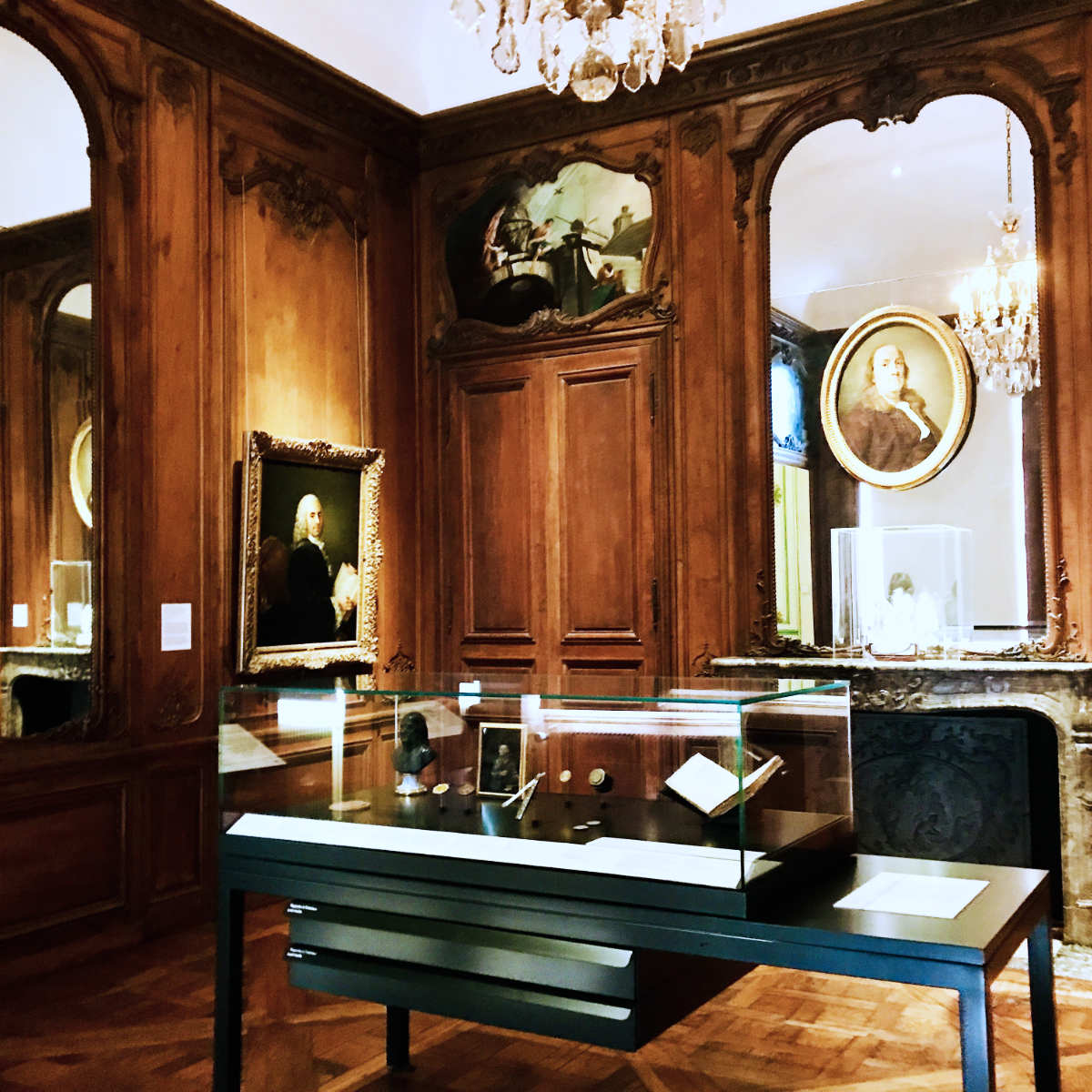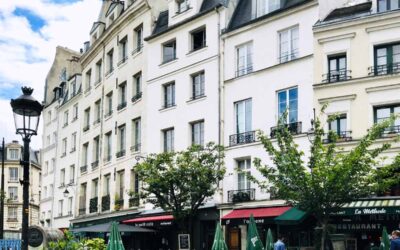There is something about the romance of buying a property in France. Owning a piece of the country’s history and culture, and hoping that some of that je ne sais quoi rubs off.
Whether you are buying a pied-à-terre apartment in Paris or a large manor house for your family in the French countryside, the property-buying process in France remains for the most part, the same.
Now, I should note that this article does not include legal advice as I am not a lawyer, just someone who has been through the process and so has walked through many of the different steps.
The process isn’t that complicated or different from other countries, but if French is not your first language, it can be intimidating. If you’re a foreigner looking to move to France and buy a property, you’ve probably heard all kinds of quirks about the process and wondered whether or not they are true.
And I should note that renting in France can be even trickier, so if you love France, you will want to invest in one of the top cities here. So let’s get to the ins and outs of buying a home in France, shall we? Allons-y!
- French Real estate Vocabulary
- Meeting the real estate agent and signing a bon de visite
- Making an offer
- The Notaire
- "Promesse de vente" or "Compromis de vente" (Sale offer agreement)
- The Diagnostics
- Easements and servitudes
- Rules of the Syndic
- Right of Preemption by the Mairie
- Before signing the final agreement
- Vice Caché and State of the property
- Getting the House Keys
- Signing the Acte de Vente définitif
French Real estate Vocabulary
In order to guide you in your house buying process, here is some French vocabulary that you may find useful:
- Agent immobilier – real estate agent.
- Notaire – an officer of the law who holds a recognised public office and who officializes the purchase and sale agreement.
- Mairie – townhall of the commune
- Acheteur – buyer
- Vendeur – seller
- Promesse de vente or Compromis de vente – Initial purchase offer
- Acte de vente définitif – Final act of sale
- SCI – a type of French corporation that holds real estate
- Prêt immobilier or crédit immobilier – property mortgage
- Syndic – The facility management of a condominium building that oversees accounts, insurance, bills, and works among other things.
- Taxe foncière – Yearly property tax paid by the owner
- Taxe d’habitation – Yearly habitation tax paid by the person resident on January 1st each year. (Secondary homeowners pay a higher taxe d’habitation.)
Meeting the real estate agent and signing a bon de visite
When you find a property listing in France that you are interested in visiting, it is likely being represented by an agent immobilier (real estate agent).
Before showing you the property, the real estate agent will probably ask you to sign a bon de visite. This is a legal document confirming that you have viewed the property with the real estate agent, and is intended to secure their commission in case you do decide to put in an offer.
Once signed, you cannot put in an offer directly with the seller or through another real estate agent.
Making an offer
When you find a house that you are interested in, you can make an offer. The seller is obliged to accept an offer that is at full price, but can choose between several full price offers.
Bidding wars do not occur in France, as offers can come in below full-asking, but not above.
i) Deposit with house offer
At the time of the offer, the buyer usually puts down a deposit representing 5% of the sale price and a maximum of 10%. The deposit will be deducted from the overall price that will be paid on the day the final sale agreement is signed (usually 3 months after the offer).
ii) 10 days cooling off period
One of the most important things to know when buying a house in France is that you legally get 10 days “to reflect” on your decision. In essence, if you are visiting houses and find one that interests you, you can “reserve” the house by putting in a full price offer.
A full price offer is required to be accepted by the seller, as there are no overbids allowed. Once the offer is accepted, the buyer has 10 days to reflect, and can back out within those 10 days without penalty.
Thus if you put in an offer, and then bring your architect in to look at the necessary work, you can still withdraw your offer if the renovation budget is higher than accepted.
In cases where you are buying a house in France, and not an apartment, this particularly important as there are more things to look for (which you can read about in this detailed house-buying checklist.
I should note that during the 10 days of reflection, you actually only get about six in reality. This is because if you back out, you have to send a letter with recorded delivery to arrive no later than the 10th day.
Generally French people do not sign for a house unless they are sure of what they are doing, but you should be aware that this legal delai de retraction does exist.
iii) Suspensive Clauses
When putting in an offer on a house in France, you can include several clauses suspensives or conditions required to fulfil the sale. If you need a mortgage to complete the sale, the requirement of one would be drafted up by the notaire or the real estate agent as a clause suspensive.
In addition, if you agree with the vendor that certain works will be completed by the seller before you take ownership, these can also be included as a clause suspensive. In case of non-completion, the Notaire can retain a sum from the purchase price to confirm that the work was done.
The Notaire
At the time of the offer, the notaire will place the deposit in an escrow account while awaiting the final sale. The notaire is a legal specialist who is considered neutral between the two parties.
However, certain notaires may have long-standing relations with the seller, so inadvertantly may look out more for their interests than your own. You may be well-advised to get your own notaire, as there is no increase in fees for doing so.
In case of two notaires, the notary fees are split between the two so there should be no additional fees. Having your own notary will allow you to better plan how you wish to purchase the property based on your personal situation.
France has strict inheritance laws, so many people choose to purchase property in a type of corporation called an SCI. If you are married, they can also advise you based on the marriage regime you would fall under, taking into account any prenuptial agreements, step-children, etc.
“Promesse de vente” or “Compromis de vente” (Sale offer agreement)
Once the offer has been agreed to, the real estate agent will draw up either a “promesse de vente” or a “compromis de vente“. In certain cases, it may be the notaire who draws up the sales offer agreement, if there are a lot of suspensive clauses, or other things to take into account in the contract.
In essence, a promesse de vente is binding on the vendor, while a compromis de vente is binding on both parties.
i) Promesse de Vente
In the promesse de vente (also called “unilateral promise of sale”), the owner agrees with the prospective buyer to sell him his property at a determined price. It thus gives it an exclusive “option” for a limited time (generally two to three months).
During this period, the seller is prohibited from offering the sale to another buyer. The prospective buyer benefits from the promise to decide whether he wants to buy or not.
In return, he pays the seller a deposit, in principle equal to 10% of the sale price. This remains with the seller as compensation in the event of the buyer’s renunciation. However, it is returned to the buyer in the event of an unrealized suspensive condition.
ii) Compromis de Vente
The compromis de vente (or “reciprocal promise of sale”) commits the seller and the purchaser to conclude the sale at a determined price. The compromise is also accompanied by the payment of a possible security deposit (between 5% and 10% of the sale price), along with suspensive conditions precedent and a withdrawal period of 10 days for the buyer.
In this case, when one party renounces the sale, the other can compel it through legal proceedings and by demanding monetary damages above that of the deposit.
The Diagnostics
Once you put in an offer, you should receive a detailed set of diagnostics. Diagnostics are required by law and will be paid for and provided by the seller. The diagnostics will usually include:
- energy performance (DPE),
- the risk of exposure to lead,
- the presence of asbestos,
- the condition of the electrical installations if it is over 15 years old,
- the condition of the gas installations if it is over 15 years old,
- the state of natural and technological risks.
- the presence of termites,
- the state of the non-collective sanitation installation for individual houses,
- and since June 1, 2020, noise must also be assessed, for properties located in noise zones around airports.
While the diagnostic report is strictly regulated and issued by licensed professionals, there are a number of things that can be beyond their scope so you must do your homework.
I should note that the diagnostics report is not a structural survey, and potential issues with the stability of the building are beyond its scope. While a diagnostics report is paid for by by the seller, a survey will not be.
If you do want to get a structural survey, you will have to pay for it yourself. Keep in mind that either way, there is no legal recourse against the surveyor or the diagnostics professional in case of problems down the road.
Easements and servitudes
If you are buying a house, it is not unusual in France for there to be an easement of access or a servitude on the land surrounding old houses.
A neighbor may be required to go through your backyard to access his own. Water, electricity supply, or sewage lines may be running at your doorstep or below the land you are looking at. (An apartment in Paris will come with its own quirks, but this is not one of them!)
Review all documents available at the local mairie (meaning “townhall”), as there may be all sorts of roadways, access rights, and other rights of way.
Rules of the Syndic
If you are buying an apartment or a property in a building, it is likely governed by a syndic de coproprieté (facility management office). The building management office will have certain rules and restrictions as to what you can and cannot do in your apartment.
For instance, if you want to install air conditioning in your apartment, there are a whole host of rules to obey. In addition, if you are thinking of renting out your Parisian apartment on Airbnb, the syndic may disallow it.
The rules of the coproprieté will be provided to the purchaser at the same time as the diagnostics, so you should peruse that in detail.
Right of Preemption by the Mairie
One of thing to be aware of when purchasing a house or apartment in France is that the local Mairie (townhall) has a droit de préemption. Every purchase and sale offer must be submitted to the Mairie to be validated by them.
This is usually done by the notaire on your behalf. And while rare, sometimes the Mairie says no. They may have other plans for the property and may choose to purchase it to build a new office building, extend train tracks, etc.
There is not much you can do in this situation, other than be aware that the risk of preemption exists.
Before signing the final agreement
French law allows the seller to take any “fixtures” whose removal does not cause damage to the property. Thus many sellers feel free to strip the home of all items such as lightbulbs, curtain rods, and even entire kitchens.
Unless it is specifically written in the compromis de vente or acte de vente, it could potentially be removed by the sellers during their move.
You can insist that you be allowed to visit the property the morning of the final signature on the acte de vente, to ensure that the property is as you expect it.
A few days before the final signatures and completion of home purchase, the notaire will communicate the RIB where the funds should be transferred. Triple-check that you are indeed transferring the funds to your notaire.
In addition, the Acte de Vente contract can be 50-100+ pages long and must be in French. I highly recommend asking for a copy in advance so that you can read it at leisure and ask for clarification for any items.
Vice Caché and State of the property
There days a standard legal exemption clause is included in most property sale contracts in France to reduce the risk of a vice caché:
Exemption clause for Vice caché (example)
I have written out the exact paragraph in French, so that you can recognize when you see it:
L’ACQUEREUR prendra le BIEN dans l’état où il se trouve à ce jour, tel qu’il l’a vu et visité, le VENDEUR s’interdisant formellement d’y apporter des modifications matérielles ou juridiques. Il déclare que la désignation du BIEN figurant aux présentes correspond à ce qu’il a pu constater lors de ses visites. II n’aura aucun recours contre le VENDEUR pour quelque cause que ce soit notamment en raison:
– des vices apparents,
– des vices cachés.
S’agissant des vices cachés, il est précisé que cette exonération de garantie ne s’applique pas :
– si le VENDEUR a la qualité de professionnel de l’immobilier ou de la construction, ou s’il est réputé ou s’est comporté comme tel,
– s’il est prouvé par l’ACQUEREUR, dans les délais légaux, que les vices cachés étaient en réalité connus du VENDEUR.
Le VENDEUR ne confère aucune garantie de contenance du terrain ni de superficie des constructions.
Example of an exemption clause for Vice caché
This translates in English to:
The PURCHASER will take the PROPERTY in the state in which it is to date, as he has seen and visited it, the SELLER formally refraining from making any material or legal changes. He declares that the description of the PROPERTY appearing herein corresponds to what he observed during his visits. There will be no recourse against the SELLER for any reason whatsoever, in particular due to:
– apparent defects,
– hidden defects.
Regarding hidden defects, it is specified that this warranty exemption does not apply:
– if the SELLER is a real estate or construction professional, or if he is known or behaved as such,
– if it is proved by the PURCHASER, within the legal time limits, that the hidden defects were in fact known to the SELLER.
The SELLER does not give any guarantee as to the capacity of the land or the area of the constructions.
As you can imagine, lawyers and notaires will debate endlessly about what is covered here and what is not.
Either way, legal proceedings in France can go on for extended periods of time, and you are better off doing your due diligence before purchasing a house or apartment in France.
Getting the House Keys
In certain countries it may be common to ask for the keys in advance, or start to place some of your belongings in the property in advance of the final signature. This however, can open up a can of worms in France.
France has very strong squatters’ rights so many notaires and sellers are reluctant to accommodate such requests. This is especially the case in winter, when it is even more difficult to remove tenants and squatters during the trêve hivernale, between November to March.
In addition, there is the issue of insurance, where the question of who is responsible in case of damage.
If you do find yourself in such a situation, you may find it easier to rent a storage facility to keep your belongings, rather than on the purchase property.
Similarly, if there are tenants currently occupying the property, you will want to be sure that they have left the premises before you sign and take possession.
Signing the Acte de Vente définitif
On the day of the Acte de Vente définitif both the purchaser and seller will gather in the notaire’s office in order to sign the final papers. (The real estate agent is usually not present.)
If you are not comfortable in French, you may want to bring a translator to help you. The cost may be well worth it. In certain cases, the notaire may insist that you have a certified translator with you.
In any case, this is the Acte de vente définitif, so you are now a proud owner of a property in France! Félicitations!

So have you been put off by all the ins and outs of buying a property in France? If you enjoyed this article, you may want to read more about interesting differences between French houses and ones you may be used to. A bientôt!




